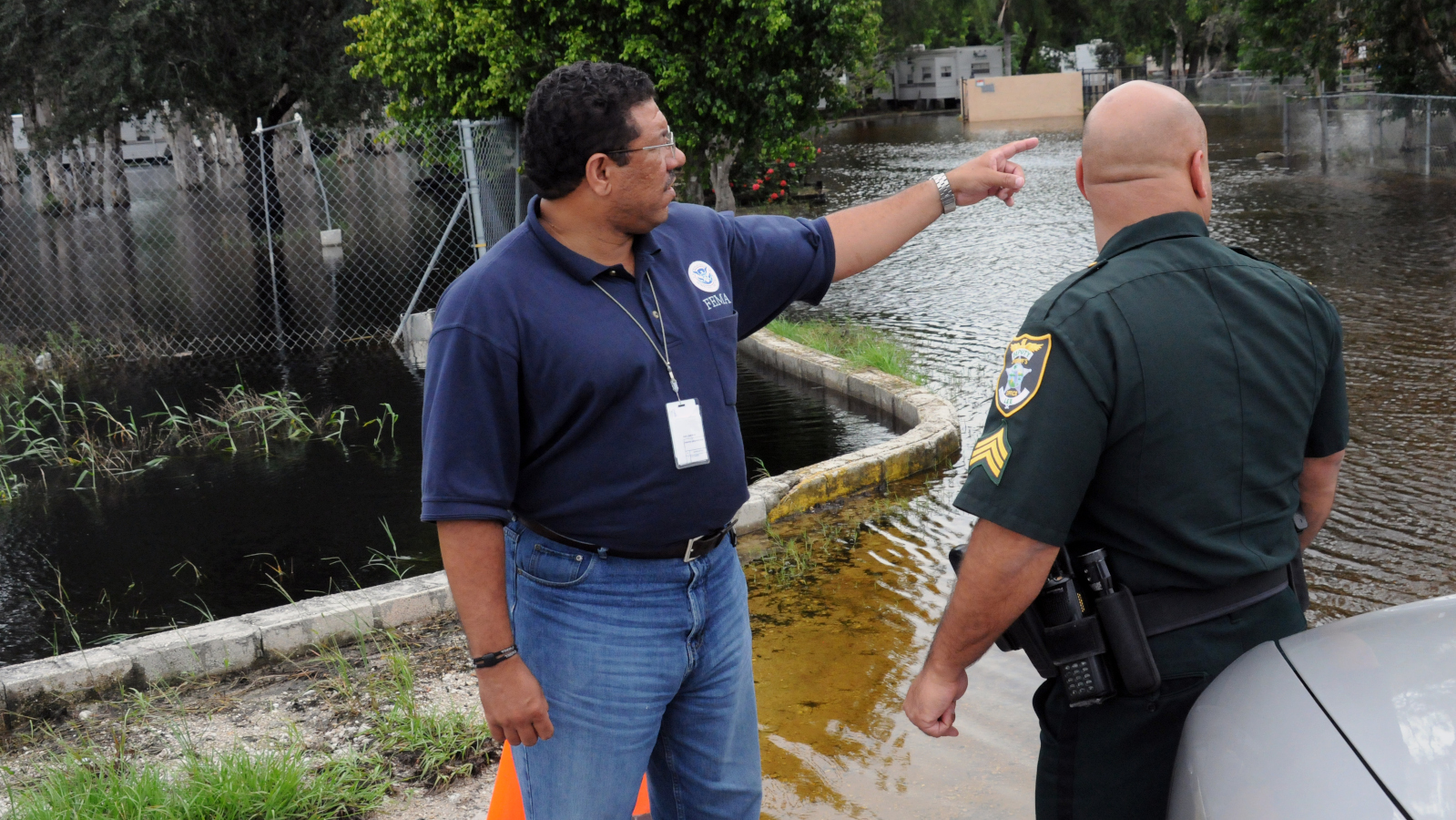
Litigation on water claims increased dramatically in the past few years, making profitability difficult for private insurance companies. | Barry Bahler/FEMA
Florida’s property insurance provider of last resort has begun to see an increase in policyholders after spending eight years reducing its exposure and its share of the residential market from 23% to 4%.
The amount of litigation filed against private insurers and their policyholders and its increase in severity has resulted in more Florida homeowners to turn to Citizens Property Insurance Corp., Barry Gilway, president and CEO of the corporation, said, according to his June 24 report to its board of governors.
Citizens cut its exposure to $108 billion in the past eight years, down from $512 billion. This reduced assessment potential in the occurrence of a 1-100-year storm from $11.6 billion to 0 today, Gilway said.
“Depopulation of Citizens was clearly driven by the exceptional profitability of the Florida market from 2013-2016 that created a highly competitive private market,” he told the Citizens board of governors. “For the past four years, our policy count has remained relatively stable in the 420,000 to 450,000 range as we returned to our role as a residual market.”
But now in 2020 that seems to be changing as those policy numbers are on the rise. Gilway said estimates show an increase to 517,000 policies from the carrier’s planned 2020 budget of 431,000 policies. Citizens’ renewals and new policies are increasing.
Florida domestic insurance companies have shown negative net income for the past three years, Gilway told the board of governors. Affordable reinsurance has been tougher for the domestic companies to find with the increase in risk transfer pricing for traditional and catastrophe bond markets, he said. That also results in consumers having a harder time finding affordable coverage.
How higher reinsurance costs will affect rates is still unknown. What has been seen is that the changing business models Demotech required for carriers to keep their ratings have affected growth plans in a market with limited affordable capital.
“The competitive position of Citizens in a market that is increasing pricing dramatically is an issue that we will be addressing at some length in the September board meeting,” Gilway told the board of governors.
To maintain profitability, insurance companies are abandoning geographic areas through Florida Office of Insurance Regulations orders. Capital Preferred decided to cancel 27,000 policies. Many have cut business in areas like the SOLO (Seminole, Orange, Lake and Osceola) counties, which show deteriorating results for the companies. In the SOLO counties, insurers are either limiting new business and renewals or canceling partnerships where much of their agents’ business is concentrated in the unprofitable areas.
Gilway used the SOLO counties as an example of trends happening around the state, which had an increase in property lawsuits in the 27,416 in 2013 up to 84,000 through 2019.
“Through the first five months of 2020 there have been 30,164 lawsuits – on a straight-line track to reach over 70,000 by year-end 2020,” Gilway told the board of governors
Citizens had a market share of less than a half percent represented by 8,000 policies in the SOLO counties. Litigation may affect that, as the SOLO counties are the source of 14% of all lawsuits in Florida compared to 8% in 2013. Dade County now has more than 20,000 cases, a 100% increase. The SOLO counties had a 518% increase with lawsuits rising from 2,162 in 2013 to 11,214 by the end of 2019.
“Companies are finding it difficult to keep up with the increased cost of this litigation despite the significant rate increases,” Gilway told the board of directors.
The loss/loss adjustment expense (LAE) for water claims that have been litigated increased to $48,814 as of March 31, a big jump from the loss/LAE in 2012 of $23845.
Non-litigated water claims also rose in that time period from $7,876 to $10,097.
“Bottom line though is that a litigated claim costs four times that of a non-litigated claim and that is why our claims team is so focused on reducing the number of litigated claims through innovative programs such as MRP and the introduction of the appraisal program,” Gilway told the board of governors.
He said in a deteriorating litigation environment and an accompanying increase in severity, “it presents an almost impossible scenario for private companies to keep up with the required pricing/rates in order to remain profitable and continue to do business in impacted counties," according to the report.
This contributes to Citizens' growth, he said.
Gilway said they hope that the study by Florida State University’s Florida Catastrophic Storm Risk Management Center with the College of Business through a grant from Citizens will give them insight into the increase of litigation and its severity. He told the board of governors he expects recommendations for legislative changes and possible changes to Citizens' operations plans.



 Alerts Sign-up
Alerts Sign-up